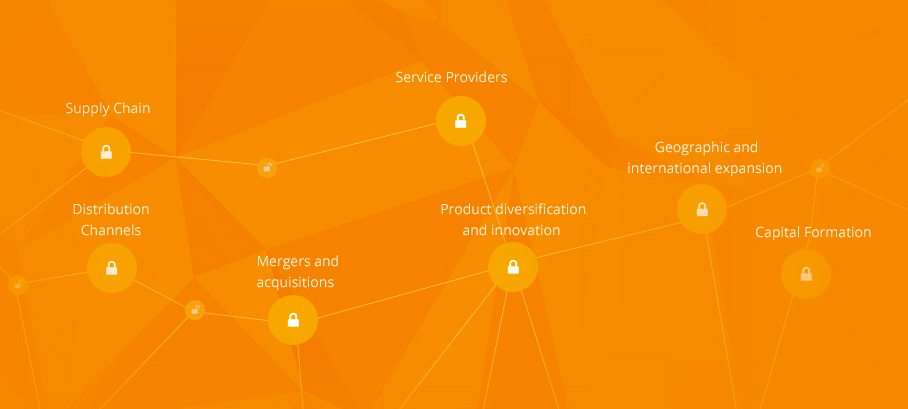Powerlinx’s four founders view themselves as the ultimate matchmakers.
But they’re not in the business of helping singles find love. Instead, they built Powerlinx, a platform where small- to medium-sized businesses can further their strategic objectives by connecting with other companies.
The Powerlinx team works with its members to determine what their objectives are — say, finding new suppliers or expanding their customer base — then it utilizes its “matching engine” to sift through potential matches in its company database (20 million businesses and growing). After serving up one or two dozen qualified leads, Powerlinx will reach out to the companies that prove interesting to the original business.
“We put the two parties together, kind of like eHarmony or JDate,” said Doron Cohen, Powerlinx’s cofounder and CEO, in a recent interview with VentureBeat. But unlike a dating site, “The response [rate] is tremendous — we’re talking not about .005 percent.”
Yoni Cohen, Powerlinx’s head of product, pegged response rates at close to 16 percent. It’s actually natural that it would be that high, he explained: Powerlinx not only accounts for its customers’ needs, but also their positioning, or how they could benefit potential partners.
“You’re only going to invest time in qualified introductions,” he said.
As a byproduct of facilitating all these introductions, Powerlinx introduces new companies to its platform, which officially launched today. The team believes it’s created a viral model for business-to-business partnerships.
“Start with a group of tech companies, and very quickly their supply change will move into industrial and wire manufacturers, and they’ll connect us with robotics firms,” said Yoni Cohen. “It’s actually kind of fun watching them get built; we’re at a fourth generation already with one of the initial links.”

Powerlinx has been working on its platform for the last 18 months, during which time it’s stealthily brought 1,300 businesses onboard. It plans to launch a subscription model in the second quarter of 2014, so it doesn’t have any paying customers yet. (Well, that’s not exactly true: After one member closed his second deal through Powerlinx, he offered the company an unsolicited $1,000 payment, according to chief marketing officer Kristen Fergason.)
Powerlinx shares some similarities with matchmaking and consulting services, but by supplementing the process with massive quantities of data — mostly scraped from publicly available sources, but also gathered from its members — the company’s executives don’t view them as key competitors. Plus, Powerlinx doesn’t take a commission on deals resulting from successful matches.
The company also “learned a lot” from professional networking platforms like LinkedIn, which has an office a few floors below Powerlinx in Manhattan’s Empire State Building. Powerlinx is avoiding talent acquisition, though, opting to focus on its members’ other strategic objectives.
The company currently has 15 employees in New York and another 10 in Israel. Its four founders kicked in $2.4 million for its initial seed round, and just added another $1.4 million to a proposed $3 million round. Most of that money will go toward marketing, according to Doron Cohen.
“For us, achievement is to be able to move global economy,” he said. “If we can help a little bit, we’ll create a lot of work for people and good things for the world.”


